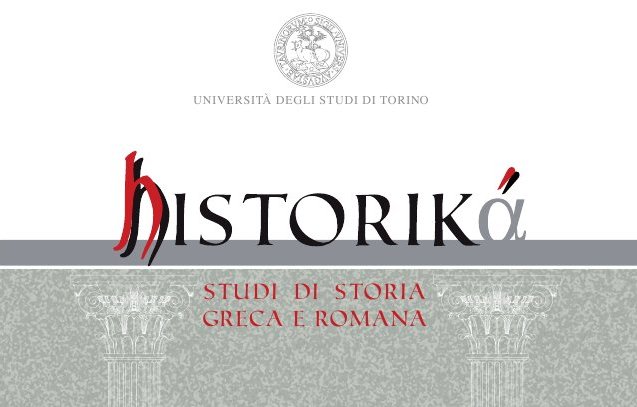La corrispondenza imperiale con le città greche
DOI:
https://doi.org/10.13135/2039-4985/3472Abstract
Per l’amministrazione dell’impero romano lo scambio epistolare fu uno strumento indispensabile: le lettere che l’imperatore scriveva e riceveva costituivano la principale forma di collegamento tra il princeps e i sudditi, tra il centro e la periferia.
Il contributo analizza alcuni esempi di corrispondenza indirizzata a comunità cittadine, in cui il princeps è chiamato ad esprimersi su esenzioni e privilegi, per concedere nuovi benefici o per confermare quelli già esistenti.
In particolare l’invio da parte del principe a più destinatari di lettere concernenti la stessa materia permette di capire meglio come l’amministrazione romana funzionasse, come fosse gestito il controllo del territorio pur in assenza di una struttura burocratica pervasiva: lo scambio di messaggi tra principe, governatore, procuratore, autorità cittadine, infatti, consentiva comunque al potere centrale di avere conoscenza delle necessità dell’impero e di intervenire laddove fosse necessario.
The correspondence was an essential instrument in order to administrate the Roman Empire: The letters written and received by the Emperor represented the main way of connection between the princeps and its subjects, between the center and the edge of the Empire.
In the examples of correspondence examined in this article and directed to urban communities, the princeps is requested to express himself about exemptions and privileges, in order to allow new benefits or to confirm the existing ones.
In particular, letters concerning the same matter sent by the princeps to different addressees permit us to better understand how the Roman administration operated and how the control of territory was exercised (even without a pervasive bureaucratic structure). Indeed, the correspondence between the Prince, the governor, the procurator and the city authorities allowed the central authority, anyway, to have awareness about the needs of the Empire and to intervene where necessary.##submission.downloads##
Pubblicato
Fascicolo
Sezione
Licenza
Gli autori che pubblicano su questa rivista accettano le seguenti condizioni:
- Gli autori mantengono i diritti sulla loro opera e cedono alla rivista il diritto di prima pubblicazione dell'opera, contemporaneamente licenziata sotto una Licenza Creative Commons - Attribuzione che permette ad altri di condividere l'opera indicando la paternità intellettuale e la prima pubblicazione su questa rivista.
- Gli autori possono aderire ad altri accordi di licenza non esclusiva per la distribuzione della versione dell'opera pubblicata (es. depositarla in un archivio istituzionale o pubblicarla in una monografia), a patto di indicare che la prima pubblicazione è avvenuta su questa rivista.


 The journal has been approved for inclusion in DOAJ. The DOAJ listing of the journal is available at
The journal has been approved for inclusion in DOAJ. The DOAJ listing of the journal is available at 

